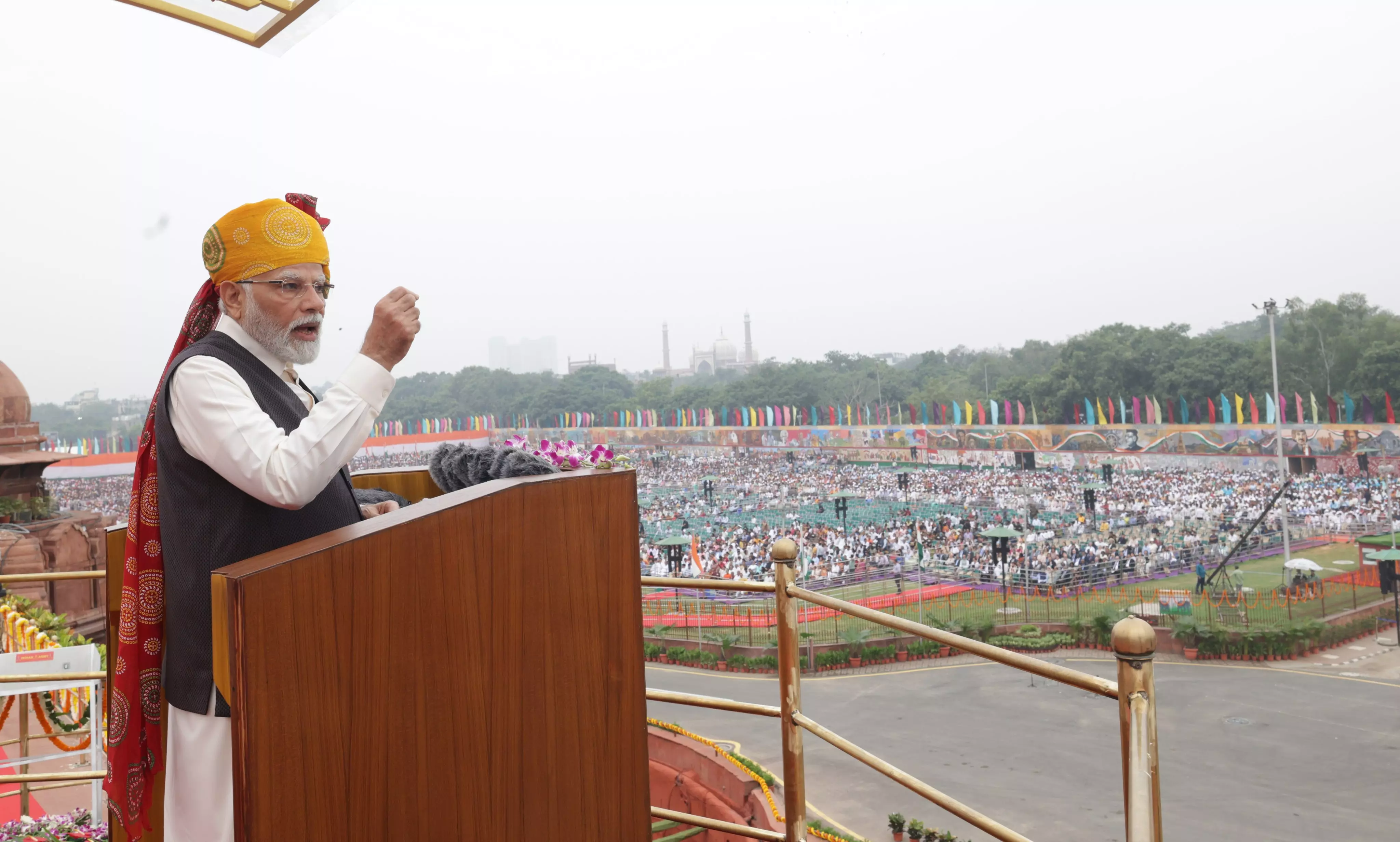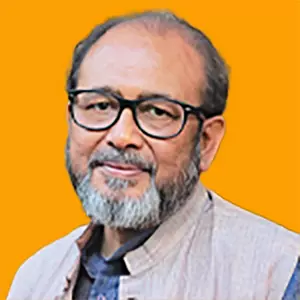
- Home
- India
- World
- Premium
- THE FEDERAL SPECIAL
- Analysis
- States
- Perspective
- Videos
- Sports
- Education
- Entertainment
- Elections
- Features
- Health
- Business
- Series
- In memoriam: Sheikh Mujibur Rahman
- Bishnoi's Men
- NEET TANGLE
- Economy Series
- Earth Day
- Kashmir’s Frozen Turbulence
- India@75
- The legend of Ramjanmabhoomi
- Liberalisation@30
- How to tame a dragon
- Celebrating biodiversity
- Farm Matters
- 50 days of solitude
- Bringing Migrants Home
- Budget 2020
- Jharkhand Votes
- The Federal Investigates
- The Federal Impact
- Vanishing Sand
- Gandhi @ 150
- Andhra Today
- Field report
- Operation Gulmarg
- Pandemic @1 Mn in India
- The Federal Year-End
- The Zero Year
- Science
- Brand studio
- Newsletter
- Elections 2024
- Events
- Home
- IndiaIndia
- World
- Analysis
- StatesStates
- PerspectivePerspective
- VideosVideos
- Sports
- Education
- Entertainment
- ElectionsElections
- Features
- Health
- BusinessBusiness
- Premium
- Loading...
Premium - Events

If Modi was sincere about ensuring that his call for the cessation of violence based on social identities was strictly followed, he would have issued unambiguous instructions to workers of the BJP and other right-wing outfits
Prime Minister Narendra Modi’s Independence Day speech from the ramparts of the Red Fort, the seat of imperial power for more than two centuries during the late medieval period, was important for being his last address to the nation on this occasion before the 2024 Lok Sabha elections.
Towards the conclusion of the speech, he exuded confidence in getting re-elected for a record-matching third consecutive term: "Next time on August 15, from this Red Fort, I will present to you the achievements of the country, your capabilities, your resolve, the progress made in it, its success, glorifying it with even more confidence."
This assertion made this speech, not just of the Indian Prime Minister, but also of the Bharatiya Janata Party’s prime ministerial candidate in next year’s polls.
Like his speech in 2018, a significant part of this address was a ‘report card’ of sorts – achievements of the government and a rare admission that more has to be done. But, Modi was careful in being selective when presenting programmes on which he claimed ‘success’.
While reiterating, as on numerous occasions previously, the success of the COVID vaccine programme, he skirted past the government’s across-the-board failure during the second wave of the pandemic in 2021. Modi did not mention any success, if any, in restoring personal finance of millions uprooted from their workplace and place of residence due to the ill-advised lockdown, imposed in March 2020 at just a few hours of notice.
Likewise, Modi glossed over his promise in 2016 to double farmers’ income by 2022. The rare acceptance that more needs to be done to tackle a problem was on the issue of inflation. On this, he stated: “Compared to the previous period, we have also had some success, but we cannot be satisfied with this much... I have to take more steps in this direction to minimize the burden of inflation on my countrymen.”
Analysing earlier speeches
Against the backdrop of the recently concluded debate on the first no-confidence motion against him in this tenure, it is important to highlight a call he gave in his first I-Day speech. Unending and gruesome sectarian violence in Manipur and the Centre’s failure to either force its own state government to act in a non-partisan way, or intervene in the situation, was the prime reason for the Opposition to table this motion in the first place.
In this context, it is necessary to recall his far more stirring and honest-sounding speech in 2014 from the same venue. Modi then called for a 10-year “moratorium on sectarianism and associated violence”.
Tuesday’s speech was delivered close to almost one hundred days of violence and unrest in Manipur and the violent communal clashes in Nuh, a Haryana district that acts like a doorway to the National Capital Territory.
Modi made no mention of these incidents barring the one paragraph devoted to the events in Manipur. He also did not refer to the fact that his call in 2014 failed because supporters of Hindutva have been at the forefront of triggering communal clashes.
If Modi was sincere about ensuring that his call for cessation of violence on the basis of social identities was strictly followed, he would have issued unambiguous instructions to workers of the BJP and other organisations symbiotically connected to the ideological fountainhead, the Rashtriya Swayamsevak Sangh.
Modi’s I-Day speech was problematic for another reason. Before elaborating, a factoid related to Modi and his assertions is necessary: Temperamentally. Modi is over-enthusiastic in repeating a coinage, an idea or alliteration. In his reply to the motion of no-confidence, Modi spoke about the need to rid India of three evils – corruption, dynasticism and appeasement. Although Modi and his party have repeatedly flagged the three issues, this was first time he mentioned them in the same breath.
'Provocative and incdendiary'
He repeated this formulation in the I-Day speech too. His subsequent call was not just problematic, but can even be considered downright provocative or incendiary. He said that “we have to create an atmosphere of hate (nafrat) against corruption”. It is not just irresponsible for a Prime Minister to call for hatred against a tendency (and by inference, the people who are its perpetuators), but it can also be considered as a ‘crime’, none less than ‘hate speech’.
Different people can more often than not, define each of these three ‘evils’ divergently, even conflictingly. For instance, the ‘ill’ of dynasticism can be considered from Modi’s narrow bandwidth wherein only leadership positions are considered while labelling a particular party as dynastic.
Some others, this includes this writer, consider the BJP too as displaying dynastic characteristics because of the presence of the largest number of lawmakers who were preceded by a member of their immediate family – even the Union Cabinet has ‘dynasts’ – Piyush Goyal and Anurag Thakur were preceded by their fathers in politics. There are others too, with progenies in politics.
Modi’s decision not to provide a clear description of the ‘evils’ can lead to constant conflict in society on the issue of ‘appeasement’. The BJP and its allies in the Sangh Parivar considered tushtikaran as a tendency of its ideological adversaries when dealing with or formulating policies for religious minorities, especially Muslims.
However, there are many, and they are connected with the saffron clan, who consider the reservation policy as an instance of appeasing the Scheduled Castes and Tribes, besides the OBCs. In that case, will people driven by caste animosity against social groups on the margins of society, decide to ‘take action’ against those who have been appeased?
Furthermore, not everyone may wish to mobilise public opinion against the BJP’s adversaries on this issue and instead decide to ‘take action’ directly against Muslims for having ‘unfairly’ gained. In that case, will we consider that Modi’s call stoked the embers and enhanced prejudice against Muslims?
Another assertion, previously made by Modi, was regarding Indian history. In his I-Day speech he stated, like in the address to the US Congress during his recent visit to the United States, that “we remember that this country was invaded 1000-1200 years ago... it was not even known that one incident would entrap India in slavery for a thousand years. And we kept getting enslaved. What a difficult time it must have been, those thousand years.”
Full of irony
The Sangh Parivar, for decades, argued that the medieval period was one of ‘subjugation’ and ‘humiliation’ of Hindus by foreign Muslims. This view of history is publicised and Muslims in the present are held responsible for alleged ‘indignities’ in the dead past. It is ironic that Modi presented the alternate history from the ramparts of a monument built during an era when cultural fusion was at its height.
Complete divesture of the spirit of words Modi chooses to describe India is a constant in his politics. Democracy may be a mother in ModiSpeak, but her children are told that dissent is nothing less than treason. Likewise, India may be a “model of diversity” but when listing elements that make up the great Indian diversity, in his I-Day speech, the prime minister listed “many languages, many dialects, many costumes, many variations”, but not the most significant diversity – that of India’s multiple faiths or religions.
Significantly, Modi is consistent with the words of President Droupadi Murmu. In her address to the nation, she said: “Each of us has many identities – apart from caste, creed, language and region, we are also identified with our families and professions – but there is one identity that is above all. That is our identity as citizens of India. Each one of us is an equal citizen; each one of us has an equal opportunity, equal rights and equal duties, in this land.” Not only did the President not say that citizens have distinct identities on the basis of religious identity but also that people are Constitutionally guaranteed this right.
If this is an election year, can a few more welfare schemes be far away? And, if the finer details of schemes are not yet ready, will not Modi provide an indication of what is to come? Every kudos must be his after all.
As a result, he informed that “on this Vishwakarma Jayanti, we will give about Rs 13-15,000 crore rupees to the people who live with traditional skills, who work with tools and with their own hands, mostly from the OBC community.” It goes without saying that this is usually celebrated on September 17. It also need not be reminded that the day is also Modi’s birthday and that the coincidence is nothing but a chance happening.
(Nilanjan Mukhopadhyay’s latest book is The Demolition and the Verdict: Ayodhya and the Project to Reconfigure India. His other books include The RSS: Icons of the Indian Right and Narendra Modi: The Man, The Times. He tweets at @NilanjanUdwin)
(The Federal seeks to present views and opinions from all sides of the spectrum. The information, ideas or opinions in the articles are of the author and do not necessarily reflect the views of The Federal)


